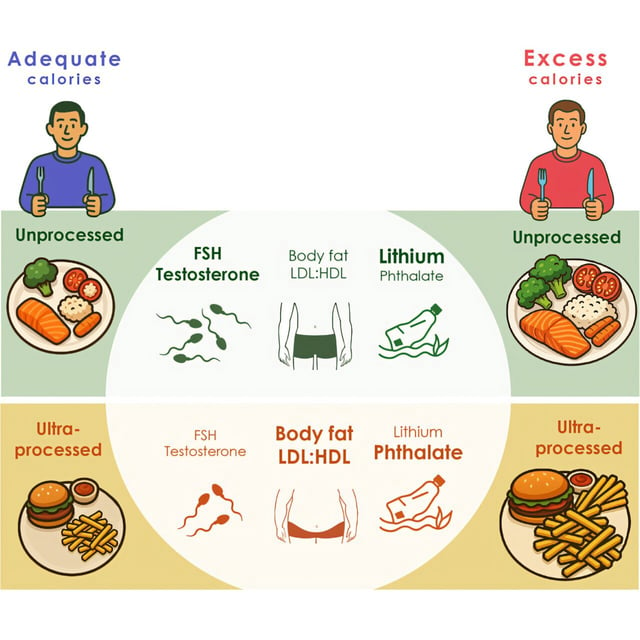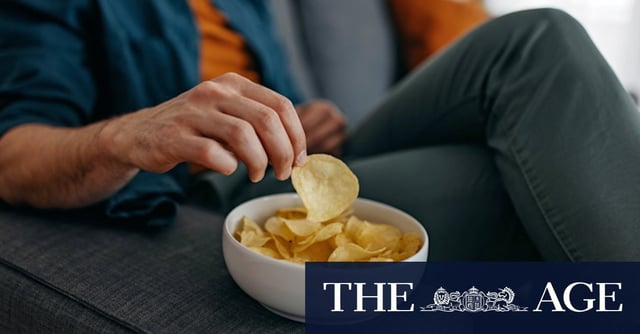Overview
- Peer-reviewed Cell Metabolism research used a randomized within-person crossover design involving 43 men aged 20 to 35.
- Each participant spent three weeks on an ultra-processed diet and three weeks on a minimally processed diet with a three-month washout, and meals were matched for calories and macronutrients.
- Participants accrued roughly 1 kilogram more fat mass on the ultra-processed plan than on the unprocessed plan across both maintenance and excess-calorie groups.
- Biomarkers during the ultra-processed phase showed higher levels of the phthalate cxMINP and decreases in testosterone and follicle-stimulating hormone associated with sperm production.
- Researchers also observed adverse shifts in cardiovascular markers and said the findings warrant reviews of dietary guidelines.



